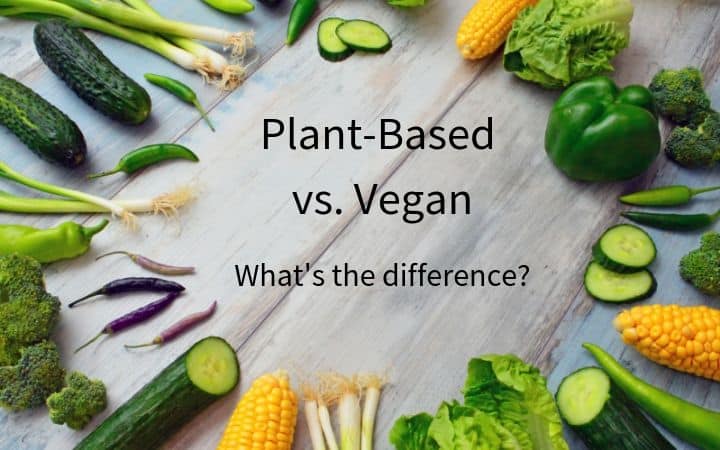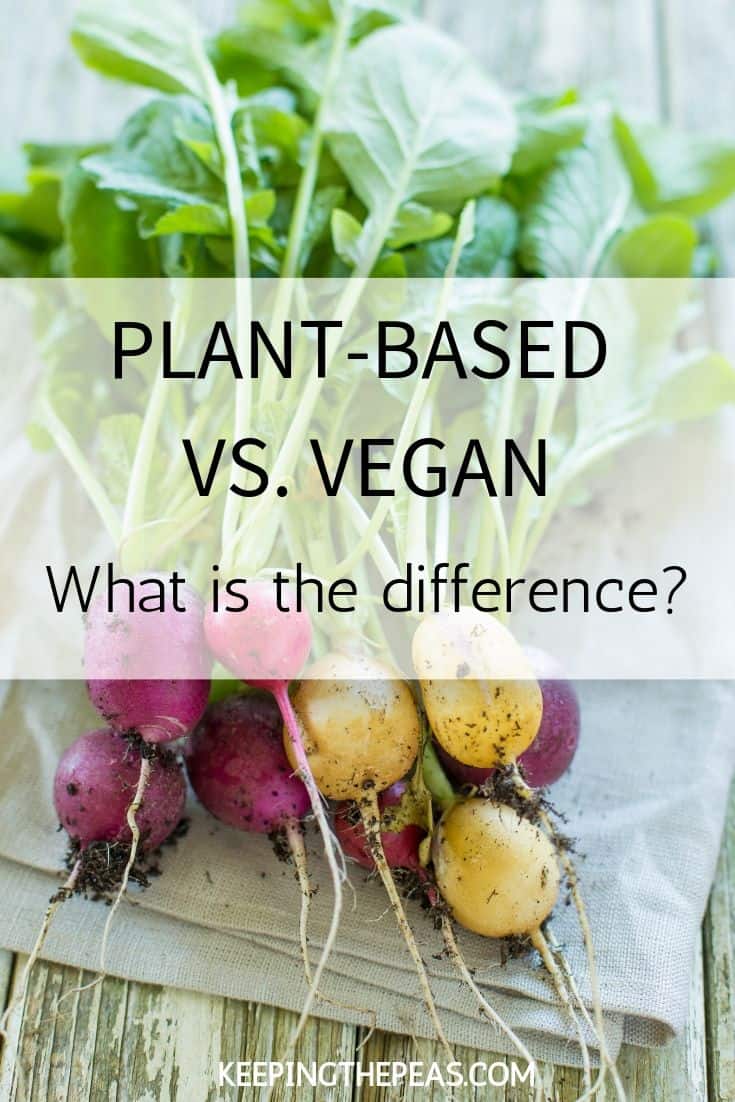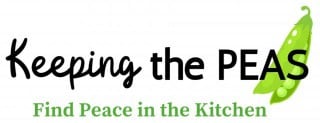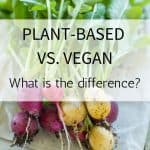Understanding the difference between a plant-based vs. vegan diet can be confusing. How are they the same? How are they different? Is one better than the other? You’ll learn the key differences between these terms, and what is best for your health.

When I was fourteen I decided to stop eating meat after watching a documentary about the treatment of animals. I no longer ate red meat, poultry, or pork. More than 20 years later, I still do not eat meat.
For a long time I continued to eat fish, and dairy sparingly. I guess you could say I was a pescatarian meaning I ate fish and dairy, but not meat. As time went on and I became more interested in nutrition and diet I came across evidence of how dairy can have negative effects on our health, and the dangers of plastics in our fish I decided to follow a whole food plant-based diet. From someone who has at one time or another been a follower of a pescatarian, vegetarian, vegan, and plant-based diet, I have some insight on the differences of a plant-based diet vs. vegan diet.
What does a plant-based diet mean?
A plant-based diet means that you eat mostly natural whole foods including whole grains, vegetables, fruits, nuts, seeds, and beans. You avoid animal products, dairy, packaged foods, and oil.
What is the difference between a vegetarian, vegan, and plant-based diet?
A vegetarian diet does not include red meat, poultry, pork, fish, or products that include these ingredients. A vegetarian diet still includes the consumption of dairy products including eggs, milk, and cheese.
A vegan diet does not include everything mentioned above and in addition it does not include any dairy products.
A plant-based diet limits or avoids animal protein, and dairy to 10% or less.
A WFPB Diet (whole food plant-based diet) consists of all whole food products, and limits the consumption of animal products and dairy to 10% or less. It also excludes all processed foods, including oil.

What is the difference between WFPB (Whole Food Plant-Based) and vegan?
If you’re still a bit confused, let’s go a little more in depth.
You’ve likely heard the terms plant-based and whole food plant-based used interchangeably.
According to Forks Over Knives a plant-based diet does not avoid oils and processed foods, while a whole food plant-based diet does. A vegan diet on the other hand does not eat animal products and dairy for ethical reasons, but they do not avoid oils or processed foods as long as they do not contain animal products.
While whole food plant-based is generally vegan, vegan is not necessarily whole food plant-based.
What does that mean? Plant-based minimizes or eliminates any processed food. While Twizzlers and Oreos are vegan, they are highly processed, and not whole food plant-based.
Whole food plant-based greatly reduces sugar consumption, and does not include any refined sugar, or oil. While fruit is encouraged, fruit juices and dried fruits are not.
Whole food plant-based can be extreme, or can allow for the occasional consumption of animal products. While many whole food plant-based followers do not eat any animal products at any time, others believe it’s okay on an occasional basis, but not as a primary staple of the diet.
Vegans do not consume any animal products at any time, but might consume processed food that does not contain animal products.
Is a whole food plant-based vs. vegan diet healthier?
A whole food plant-based diet is healthier than a vegan diet if that vegan diet includes processed meat substitutes, processed cheese substitutes, sugar, oils, and packaged processed foods.
The overwhelming evidence through academic research such as The China Study demonstrate that a whole food plant-based diet greatly reduces your risk of developing diabetes, hypertension, and cardiovascular disease.
In addition, a whole food plant-based diet promotes weight loss, and increases your intake of fiber, which has proven to lower cholesterol and blood sugar levels. When consuming fruits and vegetables and eliminating saturated fat found in animal products you could even see improvements in your skin and vision. If that’s not reason enough, being whole food plant-based helps the environment and does not promote animal cruelty.
A vegan diet that contains a lot of processed foods is not healthy. For example, you could eat a bowl of sugary cereal with sweetened soy milk for breakfast, a vegan hot dog on a white bun with potato chips for lunch, and a beyond meat burger with french fries for dinner and still be following a vegan diet. Those foods however are not healthy.
On a whole food plant-based diet you could have oatmeal with banana and flax seeds for breakfast, a quinoa salad with black beans and veggies for lunch, and a chickpea pasta with spinach and peppers for dinner, and a bowl of fresh fruit for dessert.
How I follow a whole food plant-based diet living with omnivores?
I’m a working mom. I’m doing the best that I can. I want to be as healthy as possible while also not allowing my diet to consume all aspects of my life. I primarily eat vegetables, fruit, whole grains, and plant-based protein such as legumes.
However, completely eliminating all oil from my life is nearly impossible. I buy store bought hummus that contains oil, and I’m okay with that. If I’m at a special function and they have my favorite chocolates, I’ll eat one.
When I’m home, which is the majority of the time and I have more control over the foods I prepare, I follow the whole food plant-based guidelines, using substitutes for oil such as vegetable broth.
I also live with omnivores which can further complicate a whole food plant-based lifestyle. But after much trial and error I’ve found ways to prepare healthy whole food plant-based recipes my family will happily eat.
This makes me feel good about the food I’m consuming but also the food I’m feeding my family and limits the foods I avoid from coming into our house.
Is it challenging to follow a whole-food plant-based diet?
With a little menu planning at home, and when I go out, it’s not a problem. When going to a restaurant I take a look at the menu before arriving so I have an idea of what my options will be, or how I can ask the kitchen to change a dish to make it work.
Do you get enough protein on a whole food plant-based vs. vegan diet?
When you follow a diet rich in natural plant sources you will consume enough protein. If you eat a highly processed vegan diet, you might not.
Plants contain protein. And when you’re eating a variety of plants you are getting the amino acids necessary to be healthy and whole.
For example, when you pair black beans with rice, you have a complete protein source. Americans consume more protein than necessary under a false assumption that the more protein you eat the stronger and healthier you are. The truth is the more plants you eat, the healthier you are.
Should you begin a whole food plant-based lifestyle?
Before beginning a new diet or lifestyle change you should always consult your doctor. Your nutritional needs may differ from mine or others.
The more fruits, vegetables, and natural foods you consume the healthier you will be, but that will look different for each individual.
For more information about a plant-based lifestyle please visit T. Colin Campbell Center for Nutrition Studies.
Check out these family favorite whole food plant-based recipes!
Follow me on Facebook, Instagram, and Pinterest for more plant-based tips and family recipes your whole family will enjoy!





Sue Williams
Hi Alison, I’ve recently corresponded with you re the meatless meatloaf recipe, which was my introduction to your website. On that screen I noticed this article and have read with interest. Thank you for your clear and detailed explanation of the various diet definitions – very illuminating and indeed ‘food for thought’. I look forward to exploring your website further. Thanks again.
Alison Corey
Hi Sue!
Thank you for reading the article! I’m glad you found it informative!